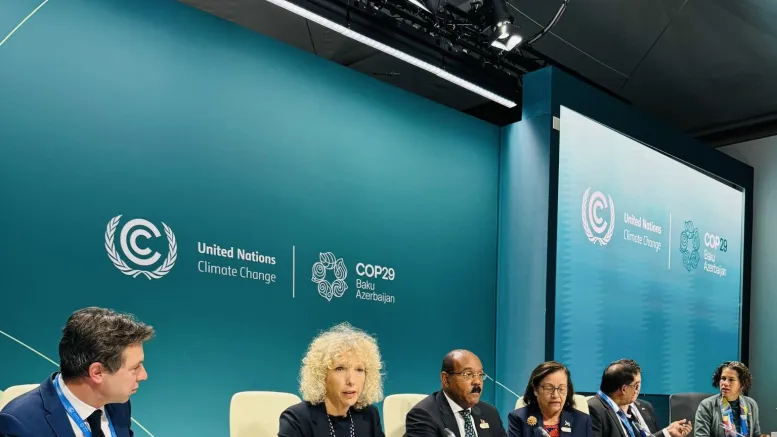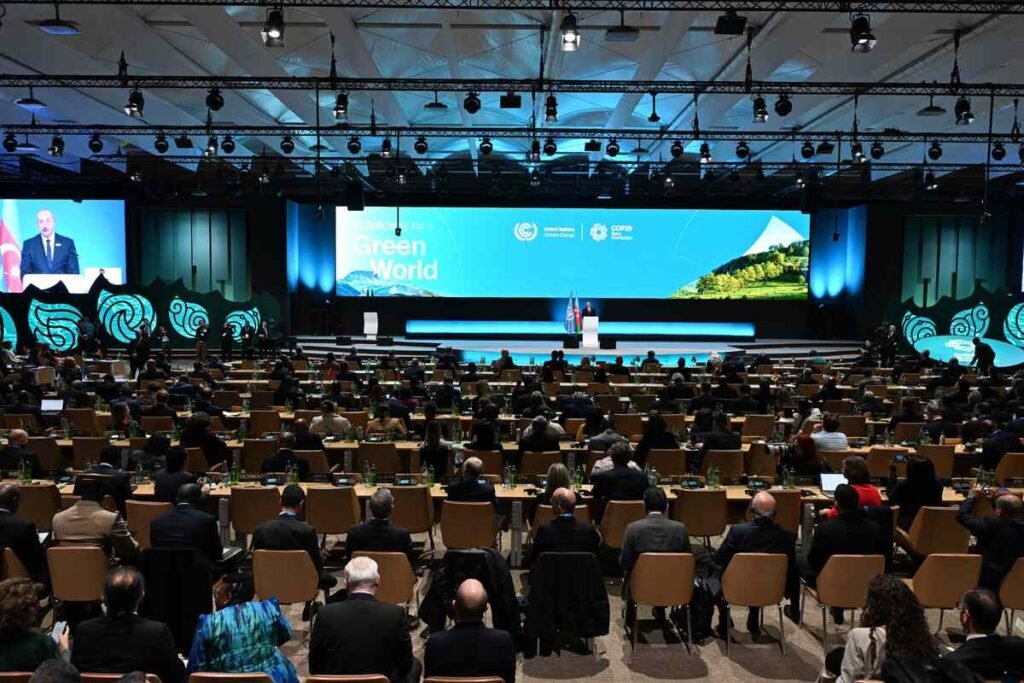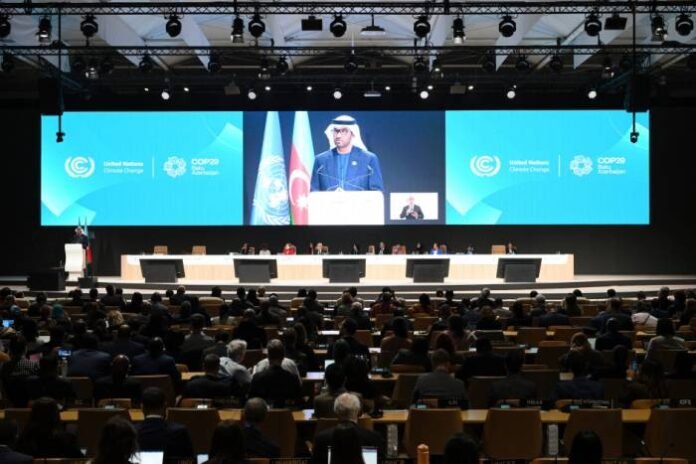The Urgency of Climate Action: Addressing Global Emissions
The climate crisis represents one of the most pressing challenges facing humanity today, informed by the stark reality that global emissions have reached unprecedented levels. The immediate need to drastically reduce these emissions cannot be overstated. To effectively combat climate change and keep global warming within the critical threshold of 1.5°C, experts indicate that global emissions must decrease by at least 9% annually over the next decade. This ambitious target is essential for mitigating the catastrophic impacts of climate change, which include extreme weather conditions, rising sea levels, and threats to biodiversity.
Failure to meet this imperative could result in dire consequences for ecosystems, economies, and communities worldwide. As temperature rise intensifies, vulnerable populations in developing nations will face increased hazards such as food and water shortages, health risks, and displacement due to rising sea levels. Such scenarios underscore the urgency of collective action on a global scale, necessitating not only immediate intervention but sustainable practices to reverse the trends of environmental degradation.
The High Ambition Coalition plays a crucial role in this landscape, gathering nations committed to rapid and transformative climate action. By promoting bold, science-based goals and fostering cooperation among governments, businesses, and civil societies, this coalition aims to catalyze efforts toward achieving significant emissions reductions. Emphasizing the interconnectedness of global economies, the Coalition advocates for policies that facilitate a just transition to a low-carbon future. They utilize a diverse range of strategies, from investment in renewable energy sources to promoting energy efficiency and sustainable land-use practices.
In light of these pressing challenges and the vital role played by collaborative efforts, it is critical for nations to align their commitments with the overarching objective of achieving substantial and timely reductions in global emissions. Only through shared responsibility and high ambition can we hope to secure a sustainable future for generations to come.
The Path Forward: Transitioning from Fossil Fuels

The pressing challenge of climate change necessitates an urgent transition away from fossil fuels toward a sustainable energy future. This transition is vital not only for environmental preservation but also for fostering economic development and addressing social inequalities. Governments and organizations worldwide are called upon to implement comprehensive strategies and policies aimed at accelerating this shift.
One effective strategy involves investing in renewable energy sources such as solar, wind, and hydroelectric power. These sustainable resources not only reduce greenhouse gas emissions but also enhance energy security by decreasing reliance on fossil fuels. By providing incentives for the development of renewable energy infrastructure, such as tax credits and subsidies, policymakers can stimulate private sector investment and drive innovation in clean technologies.
Additionally, transitioning from fossil fuels requires the development of robust energy storage and grid management systems. As renewable energy generation can be intermittent, improving energy storage solutions will ensure a stable and reliable supply. Implementing smart grid technologies can optimize energy distribution and consumption, making it easier to integrate renewable resources into existing systems.
Moreover, the economic benefits of moving toward a cleaner energy future are significant. By embracing a green economy, countries can create jobs in renewable energy sectors, thus reducing unemployment rates and generating social equity. Transitioning from fossil fuels not only enhances environmental sustainability but also can catalyze economic growth and aid in closing the inequality gap between nations. Countries investing in renewable energies are likely to experience lower energy costs and increased energy independence in the long run.
In conclusion, the transition from fossil fuels to sustainable energy sources is critical for addressing climate change, fostering economic development, and reducing social inequities. By implementing concerted policies and strategies, nations can collectively work toward a cleaner, more equitable future. The progress made in this area is not just a matter of environmental survival but also a pathway to achieving broader socio-economic benefits.
Financing Climate Action: Resources for Loss and Damage
Addressing climate change necessitates substantial financial investment, particularly in relation to loss and damage incurred by vulnerable communities and ecosystems. As the impacts of climate change intensify, the urgency for financing climate action becomes increasingly pronounced. This includes not only funding for mitigation measures but also significant resources for adaptation and recovery from climate-related disasters. The current funding landscape reveals a gap that needs to be effectively bridged to support those most affected by climate change.
Public finance plays a pivotal role in supporting climate action, particularly for developing nations that often lack the necessary resources to combat the effects of climate change. This underscores the need for increased public investment directed towards loss and damage mechanisms that can help communities adapt and restore their livelihoods after significant climate impacts. The establishment of innovative funding solutions has become critical in meeting these financing needs. Solidarity levies, for example, propose a way to gather additional revenues from activities that contribute to greenhouse gas emissions, ensuring that those who contribute to the problem also contribute to the solutions. Such frameworks can serve to strengthen the financing base for addressing urgent climate challenges.
In addition to solidarity levies, there is an imperative to enhance the capacity and resources of multilateral development banks. By scaling up investments in climate resilience and adaptation projects, these banks can provide crucial support to countries struggling to cope with the fallout of climate change. Furthermore, developing a transparent and accountable financial framework is essential for ensuring the effective mobilization and allocation of these resources. This will not only enhance trust among stakeholders but also ensure that funds reach the most impacted communities efficiently. Overall, strong financial mechanisms can help empower nations to tackle the pressing challenges posed by climate change, fostering resilience and enabling sustainable development.
The Role of Leadership: Mobilizing Global Efforts towards COP30

Effective leadership is paramount in the global response to climate change, particularly as the world approaches COP30. G20 nations and other developed countries play a critical role in spearheading efforts aimed at achieving ambitious climate goals. Their commitment to formulating and submitting new national climate action plans by COP30 is essential to ensure alignment with the established targets, including the pivotal 1.5°C commitment and the agreements reached at COP28.
As pivotal players in the global arena, G20 countries possess the capability and influence to initiate transformative policies that can significantly impact climate action. This necessitates not only the formulation of comprehensive plans but also their vigorous execution, which must be backed by adequate financial resources and technological support. The integration of the latest scientific data into these national plans is crucial; this will facilitate informed decision-making and enhance accountability in climate engagements.
The coalition among developed nations can serve as a catalyst for global collaboration, prompting developing countries to also step up their climate commitments. By demonstrating strong leadership and taking decisive actions, G20 countries can encourage other nations to follow suit, fostering a unified front in addressing the climate crisis. Moreover, collaboration can facilitate the sharing of best practices and innovations, thereby expediting the transition to sustainable practices worldwide.
Ultimately, the actions taken by leaders today will set the tone for global climate efforts in the coming years. The significance of creating an inclusive framework that encourages the participation of all countries cannot be overstated. A unified approach, driven by proactive leadership, is critical in mobilizing global efforts towards successful outcomes at COP30 and beyond.

